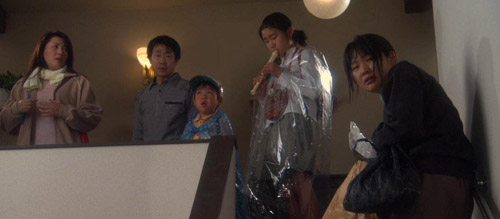10 of the Best Horror Movies Not in the English Language
Although classic horror films such as William Friedkin’s The Exorcist (1973) and John Carpenter’s Halloween (1978) may never get old, there is a genuine sense of excitement that comes with delving into the incredibly varied catalogue of horror movies not in the English language. Whether it be the world of Italian Giallo horrors, J-Horrors from Japan, the New French Extreme or any of the multitudes of other horror movements attributed to nations across the globe, horror cinema is perhaps the most international and inclusive of all film genres, offering spooks in seemingly every language and never failing to bring attention to great filmmakers from every corner of planet earth.
Often, such horror movies prove to be a terrific investment for those interested in terror and thrills, in new cinematic techniques or how films are put together, and in this list we at The Film Magazine will be offering a selection of 10 of the Best Horror Movies Not in the English Language to hopefully inspire and frighten the horror enthusiasts among us, exploring some of the very best of horror cinema in the contemporary era and ranking them from ten to one based on their artistic merits, critical receptions, standings amongst horror aficionados and audience perception.
Make sure to let us know your thoughts in the comments at the end of this article, and follow us on Twitter to stay up to date with our latest and greatest releases.
10. The Happiness of the Katakuris (2001)
Brought to you by the off-kilter creative mind of Takashi Miike, whose more well known horror Audition just missed out on a place on this list, The Happiness of the Katakuris is a brilliantly bonkers musical-comedy-horror from Japan that is proof of its director’s incomparable qualities as a filmmaker.
Beating out John McPhail’s Anna and the Apocalypse (a brilliantly underrated high-school/zombie/Christmas-movie/musical from Scotland) as the first ever Zombie-Musical hybrid, this clash of genres is enough to entice anyone to watch it, but Miike’s sense of humour truly helps to create a unique farce that you will likely never forget.
9. Pulse (2001)
Released in 2001, Kiyoshi Kurosawa’s Pulse is one of a small group of Y2K/internet paranoia films released around the turn of the millennium – films like Fear Dot Com, The Net and Hackers were other examples of films that did not celebrate the technological advancements of their time but instead seemed to fear them. Pulse is the best of the bunch.
Pulse tells the story of an ever-shrinking Tokyo, where day after day more and more people begin to mysteriously disappear, seemingly to the inside of their computers. Although the story revolves around the fear that the world will figuratively be sucked into the web (a story still relevant in one way or another even in 2020), Pulse succeeds in the fact that it does not feel like it is coming from a place of paranoia but instead that it uses our societal paranoia to create a story. Kurosawa then uses this story to create a slow burn horror filled to the brim with eerie imagery. This is one that is bound to send chills down your spine.



